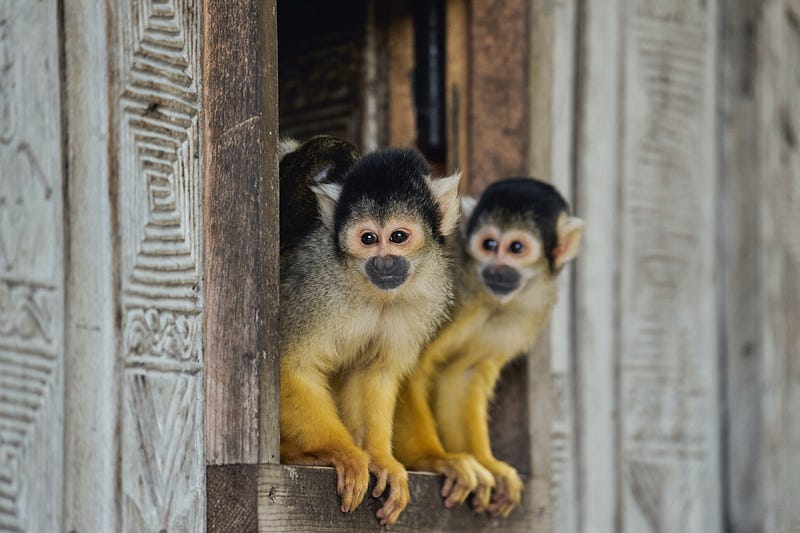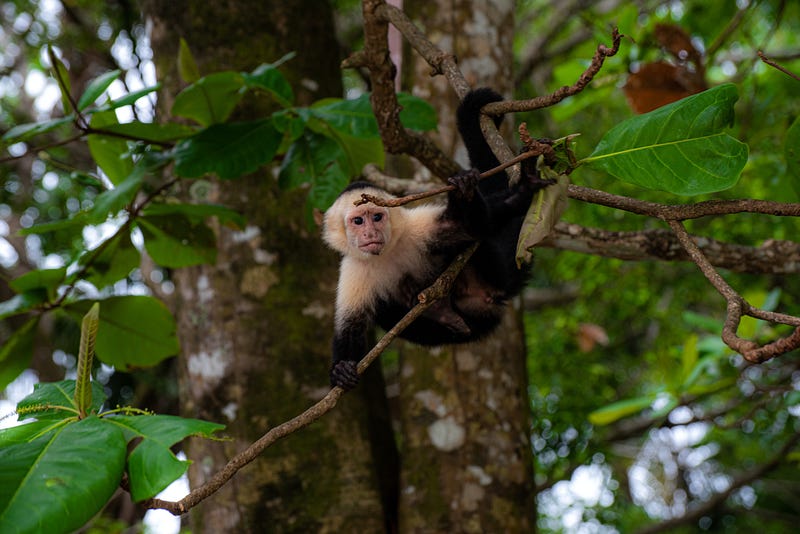The Secret to Longevity in Female Monkeys: A Study on Friendship
Written on
Chapter 1: Understanding the Role of Friendship
Recent research conducted by monkey scientists in California has unveiled that female Panamanian capuchins tend to have longer lifespans when they form friendships with other females. What could explain this intriguing finding?

Friendships are characterized by a sense of closeness, a trait shared by both humans and animals. Social species, in particular, thrive on interactions with others. However, several elements influence our choice of companions, including physical traits, scent, behavior, and other mutually beneficial factors. The mating preferences vary across species, prompting a question: What drives partner selection in the animal kingdom?
For over three decades, researchers from UCLA have been examining the day-to-day lives of hundreds of monkeys in Costa Rica. They dedicated countless hours observing these creatures in their natural surroundings. Their extensive work led to unexpected insights: female Panamanian capuchins (Cebus imitator) that fostered friendships with other females, rather than males, enjoyed longer lives.
“People often believe that social interactions provide certain advantages. However, quantifying these benefits scientifically is quite challenging,” explains Professor Susan Perry, an anthropologist at UCLA. She emphasizes the complexity of determining why we choose specific individuals for relationships, as it's not solely linked to reproduction.
Section 1.1: The Impact of Same-Sex Friendships
The recent findings, published in the journal Behavioural Ecology, establish a connection between the social bonds of female capuchins and their survival rates and life expectancy. Researchers meticulously tracked these monkeys over 18 years, observing their interactions, which included grooming, sharing food, engaging in conflicts, altruistic acts, and communication.
Based on their observations, the researchers concluded that capuchin females who cultivated friendships with other females had a higher likelihood of living longer. Importantly, there was no indication that relationships with males provided any additional survival benefits. However, Professor Perry notes that this does not imply that females who bond with males are at a disadvantage.
Subsection 1.1.1: Behavioral Parallels Between Capuchins and Humans

Other research by Professor Perry has highlighted similarities between the behaviors of Panamanian capuchins and those of humans. These behaviors include inspecting each other's mouths, holding hands, and touching a partner's face. According to Professor Perry, capuchins could serve as a fascinating case study for exploring the evolution of social behaviors in humans, particularly those that signify closeness and affection.
“Such rituals serve as a test for the strength of alliances and relationships among monkeys. They often occur between individuals who infrequently interact and are uncertain of each other's trustworthiness,” states Professor Perry. She adds, “While some of these behaviors mirror human actions, they ultimately highlight the differences between our species.”
Chapter 2: Insights into Animal Behavior and Longevity
The first video titled Female monkeys with female friends live longer explores the findings of this research, detailing how same-sex friendships contribute to longevity in female capuchins.
The second video, Don't miss out on this touching tale of love and care for our furry friends, highlights the emotional bonds formed between animals, showcasing the importance of companionship in their lives.
Thinking is tiring. It’s not an illusion!
The brain expends significant energy during mental tasks, leading to feelings of fatigue afterward. New studies reveal...
Thank you for taking the time to read this article! If you found it valuable, please consider showing your appreciation or following me for more insights.